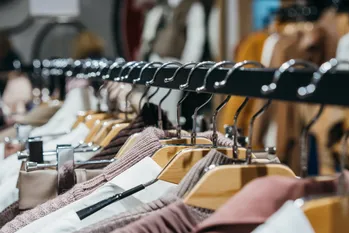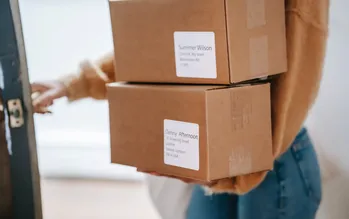I. Introduction
A. Background information on the high cost of diapers
Diapers are a necessity for babies and toddlers, but they can be expensive. According to the National Diaper Bank Network, the average cost of disposable diapers is $70 per month for one child. For families living in poverty, this expense can be overwhelming, leading some to resort to using unsafe alternatives like newspaper or reusing soiled diapers. The lack of access to clean and dry diapers can also lead to health issues such as diaper rash, skin irritation, and urinary tract infections.
B. Importance of providing free diapers to low-income families
Providing free diapers to low-income families can have a significant impact on their financial well-being. This can help alleviate the stress of affording basic necessities like food, rent, and utilities. It also ensures that babies and toddlers are kept healthy and comfortable, reducing the risk of health issues associated with inadequate hygiene.
C. Preview of organizations and programs that offer free diapers
This article will explore several national and local resources that offer free diapers for families in need. The list includes well-known organizations like the National Diaper Bank Network and Feeding America, as well as smaller community-based initiatives and partnerships with retailers like Amazon's Diaper Bank.
II. National Diaper Bank Network
A. Overview of organization's mission and services
The National Diaper Bank Network is a nonprofit organization that aims to provide clean diapers and resources to families in need through a network of over 200 member diaper banks across the United States. They collect, sort, and distribute millions of diapers every year, working with partners like Huggies and Procter & Gamble to provide bulk shipments to diaper banks.
B. Locations across the United States where they provide diapers
The National Diaper Bank Network's member diaper banks serve families in all 50 states and Washington D.C., Puerto Rico, and the Virgin Islands. Families can find a local diaper bank by visiting the organization's website and using their search tool or contacting the national office for assistance.
C. How to find a diaper bank in your area
To find a diaper bank near you, follow these steps:
- Visit the National Diaper Bank Network's website at
- Scroll down the page until you see a red button titled "Get Help Now"
- Enter your zip code or city and state into the search tool to find diaper banks in your area
- Contact the selected diaper bank to learn about their eligibility requirements, operating hours, and methods of distribution (e.g., walk-in, home delivery)
- Follow further instructions (as a website design may be changed since the date of publication of this article)
III. Feeding America
A. Explanation of their Diaper Drive program
Feeding America is a nationwide network of food banks that works to combat hunger in the United States. They also have a diaper drive program that encourages individuals and organizations to collect and donate diapers for distribution through local food banks and diaper banks. This program aims to alleviate the issue of diaper need, which is defined as the inability to afford enough clean diapers to keep a child or infant dry and healthy.
B. Ways to donate diapers through their partnerships
Feeding America partners with retailers like Pampers, Walmart, and Costco to provide bulk shipments of diapers to food banks across the country. These partnerships help ensure that diapers are available for families in need and reduce the cost per diaper.
C. How to participate in the Diaper Drive program
To participate in the Diaper Drive program:
- Visit Feeding America's website at https://www.feedingamerica.org/need-help-find-food
- The link will be available in the Help for families with babies or young kids section
- Set a goal for the number of diapers to be collected and determine a collection method (e.g., drop-off bins, virtual donations)
- Promote the Diaper Drive to your network and track progress towards your goal
- Donate collected diapers to a local food bank or diaper bank through Feeding America's Find Your Local Food Bank tool at https://www.feedingamerica.org/find-your-local-foodbank
IV. Amazon's Diaper Bank
A. Overview of program
Amazon's Diaper Bank is a partnership between the online retail giant and the National Diaper Bank Network that allows Prime members to donate a portion of their Amazon credit or gift card balance towards diapers for families in need through their AmazonSmileCharityLists program. This program allows individuals to create lists of items they want to donate to specific charities, which can then be purchased and shipped directly to the charity. B. How to participate in Amazon's Diaper Bank To participate in Amazon's Diaper Bank:
- Go to this page
Follow these steps on the page:
To set a Diaper Fund for your Registry: - Go to your Baby Registry. - Select Registry Settings. - Check the box to enable Diaper Fund. To redeem Diaper Fund contributions: - Go to your Baby Registry. - Select Redeem to view Diaper Fund contributions to your Amazon.com Gift Card balance. - Select Redeem to add individual contributions to your Amazon.com Gift Card balance. - You can also access this information in your Baby Registry by selecting Thank You & Returns.
V. Local community-based initiatives
Many communities have their own local initiatives that provide free diapers to families in need. These initiatives may include:
A. Churches and religious organizations B. Community centers and nonprofits C. Hospitals and clinics D. Women, Infants, and Children (WIC) programs E. Diaper banks run by local businesses or organizations To find these resources, ask your healthcare provider, social worker, or community center for recommendations, or search online for "free diapers [your city/state]."
FAQ Section
Q: How can I find local initiatives that provide free diapers to families in need?
A: To find local resources for free diapers, start by asking your healthcare provider, social worker, or community center for recommendations. You can also search online for "free diapers [your city/state]" to find local churches, religious organizations, community centers, nonprofits, hospitals, clinics, and WIC programs that offer free diapers to families in need. Remember to always check the legitimacy of any organization before donating or seeking assistance.
Q: What organizations offer free diapers?
A: There are various organizations that provide free diapers to families in need. Here's a list of some options you can consider:
- Diaper banks: These nonprofit organizations collect and distribute diapers to families who require them. Some diaper banks also offer wipes, pull-ups, and other baby essentials for free or at a reduced cost. To find a diaper bank in your area, visit the National Diaper Bank Network website.
- Women, Infants, and Children (WIC): This is a federal program designed to support pregnant women, new mothers, and young children with nutritious foods, breastfeeding support, and healthcare referrals. WIC also provides free diapers to eligible families.
- Local churches, religious organizations, and community centers: Many faith-based organizations and community centers offer diaper pantries or diaper drives where you can receive a supply of diapers for your baby. Check with your local church or center to see if they provide this service.
- Government assistance programs: Some states offer financial assistance programs that provide diapers to low-income families. You can contact your state's Department of Health and Human Services to learn more about these options.
- Online diaper drives: Several online retailers host diaper drives during the holiday season or other times of year. These campaigns often provide free diapers to families in need, and you can participate by donating to the cause or spreading the word about the drive.
Q: How do I qualify for free diapers?
A: The qualification requirements for free diapers vary depending on the organization providing them. Some programs require proof of income or enrollment in certain government assistance programs, while others have more relaxed eligibility criteria. Here's a summary of the most common requirements:
- Diaper banks: Most diaper banks provide free diapers to families in need based on availability and demand. However, some may require proof of income or other documentation. Contact your local diaper bank for specific details.
- WIC: To qualify for WIC, you must meet certain criteria related to income, pregnancy status, and residency. You can find more information about eligibility requirements on the USDA's website.
- Local churches, religious organizations, and community centers: These organizations may have their own criteria for distributing diapers, which could include proof of income, residency, or need. Contact your local church or center to learn more.
- Government assistance programs: To qualify for government assistance programs that provide diapers, you generally need to meet certain income and residency requirements. These requirements vary by state, so check with your state's Department of Health and Human Services for details.
- Online diaper drives: Most online diaper drives have specific criteria for participation, which could include income level, geographic location, or other factors. Check the terms and conditions of the campaign to see if you qualify.
Q: How do I find a local diaper bank?
A: To locate a local diaper bank that provides free diapers, you can follow these steps:
- Visit the National Diaper Bank Network website: This organization maintains a list of diaper banks and other resources across the country. You can search for a diaper bank in your area by entering your zip code on their website.
- Contact your state's Department of Health and Human Services: Your state may have its own resources or assistance programs related to diapers, so it's worth checking with your local Department of Health and Human Services to see if they offer any options.
- Ask your healthcare provider: Your pediatrician, family doctor, or local hospital may be aware of local resources for free diapers or other baby essentials. Don't hesitate to ask your healthcare provider for recommendations.
- Check with local churches and community centers: Many faith-based organizations and community centers host diaper drives or have their own programs to help families in need. Contact your local church or center to see if they offer any assistance related to diapers.
- Search online: You can also search for "free diapers" or "diaper banks" in your area using a search engine like Google or Bing. This should return a list of resources and organizations that provide free diapers in your community.
VI. Conclusion
In conclusion, there are many national and local resources available to families in need of free diapers. Whether you prefer to donate through a national organization like the National Diaper Bank Network or Amazon's Diaper Bank, or participate in a local initiative, every little bit helps. By working together to support families with young children, we can ensure that all babies have the basic necessities they need for a healthy and happy start in life. Remember to always check the legitimacy of any organization before donating or seeking assistance, and reach out to your healthcare provider or social worker for additional resources and support.











